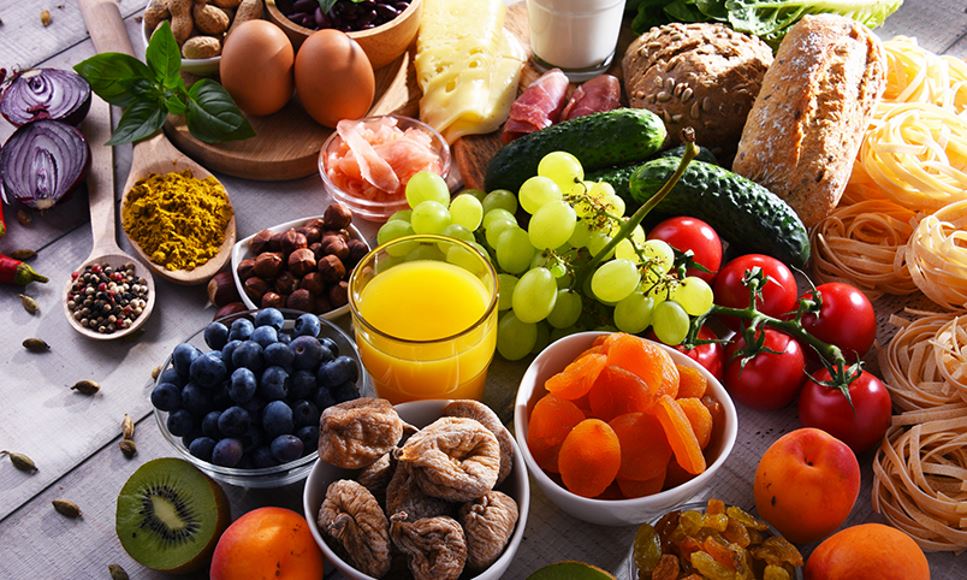A Guide to Healthy Growth and Development
 Nutrients That Nourish Preteens
Nutrients That Nourish Preteens
Preteens, aged between 9 and 12 years, experience significant growth and development. This stage of life is marked by rapid physical changes, cognitive development, and emotional adjustments. As their bodies and minds undergo these transformations, it’s crucial to provide them with the right nutrients to support their health, energy levels, and overall well-being. A balanced diet rich in essential nutrients can make a significant difference in their growth trajectory and help them develop healthy eating habits that last a lifetime. The following will explore the key nutrients that are vital for nourishing preteens.
1. Proteins: The Building Blocks
Protein is an essential Nutrient That Nourish Preteens for growth and repair. During the preteen years, when children are experiencing growth spurts, their bodies require adequate protein to support the development of muscles, bones, and tissues. Proteins also play a crucial role in the functioning of the immune system, helping preteens fight off infections.
Sources of Protein:
- Lean meats such as chicken and turkey
- Fish like salmon and tuna
- Eggs
- Dairy products like milk, yogurt, and cheese
- Plant-based options like beans, lentils, tofu, and quinoa
- Nuts and seeds
2. Calcium: Strengthening Bones and Teeth
Sources of Calcium:
- Dairy products like milk, cheese, and yogurt
- Leafy green vegetables such as kale, spinach, and broccoli
- Fortified plant-based milks (e.g., almond, soy, and oat milk)
- Fortified cereals
- Tofu
- Almonds
3. Iron: Oxygen Transport and Energy Levels
Iron is essential for the production of hemoglobin, a protein in red blood cells that carries oxygen throughout the body. Preteens need sufficient iron to maintain their energy levels and support their growing bodies. Iron is particularly important for girls as they begin menstruation, which can lead to increased iron loss.
Sources of Iron:
- Red meat, poultry, and fish
- Beans and lentils
- Spinach and other leafy green vegetables
- Fortified cereals
- Pumpkin seeds
- Dried fruits like raisins and apricots
4. Vitamin D: Bone Health and Immune Function
Vitamin D plays a critical role in calcium absorption and bone health. It also supports the immune system and can help protect against infections. Since preteens are growing rapidly, adequate vitamin D levels are essential for proper bone development.
Sources of Vitamin D:
- Sunlight exposure (the skin synthesizes vitamin D when exposed to sunlight)
- Fatty fish such as salmon, mackerel, and sardines
- Fortified foods like milk, orange juice, and cereals
- Eggs (specifically the yolk)
- Mushrooms exposed to sunlight
5. Vitamins A, C, and E: Antioxidants and Immunity Boosters
Vitamins A, C, and E are powerful antioxidants that protect the body from damage caused by free radicals. They also support immune function, skin health, and vision. These vitamins are particularly important during the preteen years to support overall health and development.
Vitamin A:
- Carrots, sweet potatoes, and pumpkins
- Dark leafy greens like spinach and kale
- Eggs
- Fortified dairy products
Sources of Vitamin C:
- Citrus fruits like oranges, lemons, and grapefruits
- Strawberries, kiwi, and pineapple
- Bell peppers
- Broccoli and Brussels sprouts
classes of Vitamin E:
- Nuts and seeds (e.g., almonds, sunflower seeds)
- Vegetable oils such as sunflower and safflower oil
- Spinach and other leafy greens
- Fortified cereals
6. B Vitamins: Energy Production and Brain Health
The B vitamins, including B6, B12, niacin, riboflavin, and folate, are essential for energy production, brain health, and the formation of red blood cells. They also play a role in maintaining a healthy nervous system, which is crucial during the preteen years as cognitive development is in full swing.
Sources of B Vitamins:
- Whole grains like oats, brown rice, and whole wheat
- Lean meats such as chicken and turkey
- Fish like salmon and trout
- Eggs
- Legumes such as beans and lentils
- Nuts and seeds
- Dairy products
7. Healthy Fats: Brain Development and Hormone Production
Healthy fats are vital for brain development, hormone production, and overall cell function. Omega-3 fatty acids, in particular, are crucial for cognitive development and maintaining heart health. Preteens need a diet that includes sources of healthy fats to support their growing bodies and brains.
Sources of Healthy Fats:
- Fatty fish like salmon, mackerel, and sardines
- Avocado
- Nuts and seeds (e.g., walnuts, chia seeds, flaxseeds)
- Olive oil and other vegetable oils
- Nut butters (e.g., almond butter, peanut butter)
8. Fiber: Digestive Health and Satiety
Fiber is important for maintaining healthy digestion and preventing constipation. This is one of the Nutrients that Nourish Preteens and helps preteens feel full longer, which can prevent overeating and support a healthy weight. Including fiber-rich foods in their diet can also help reduce the risk of developing chronic diseases later in life.
Sources of Fiber:
- Whole grains such as oats, brown rice, and whole wheat bread
- Fruits like apples, pears, and berries
- Vegetables such as carrots, broccoli, and peas
- Legumes including beans, lentils, and chickpeas
- Nuts and seeds
9. Hydration: Essential for Every Function
Water is often overlooked as a nutrient, but it’s vital for every bodily function. Proper hydration supports digestion, circulation, temperature regulation, and cognitive function. Preteens should be encouraged to drink water regularly throughout the day, especially when they are active or during hot weather.
Sources of Hydration:
- Water
- Milk
- Fresh fruit juices (in moderation)
- Water-rich fruits and vegetables like watermelon, cucumbers, and oranges
Conclusion: Building a Foundation for a Healthy Future
The preteen years are a time of rapid growth and development, making it crucial to provide a balanced diet rich in essential nutrients. By including a variety of foods that provide proteins, calcium, iron, vitamins, healthy fats, fiber, and hydration, parents and caregivers can help support their preteen’s physical and cognitive growth. Establishing Nutrients That Nourish Preteens and healthy eating habits during this stage do not only supports immediate development but also lays the foundation for lifelong health and well-being. Encouraging a diverse, balanced diet and regular physical activity will help preteens thrive and reach their full potential.





















Post Comment